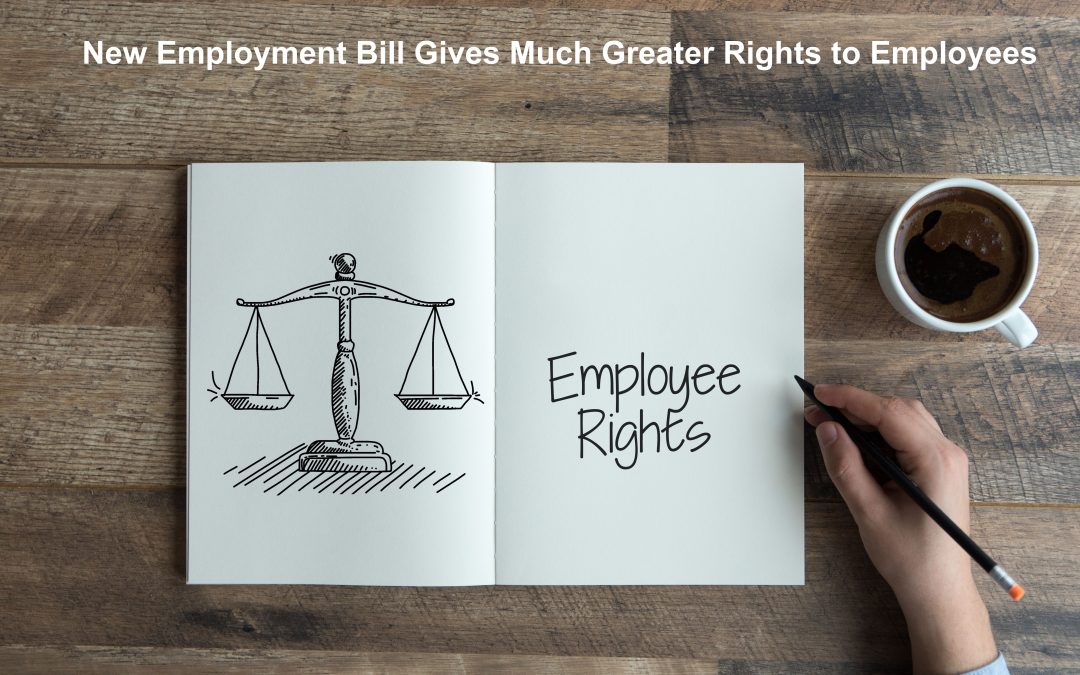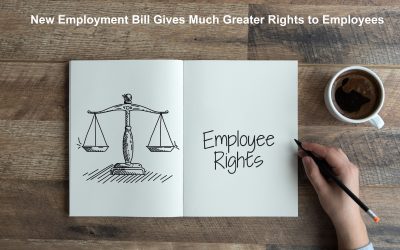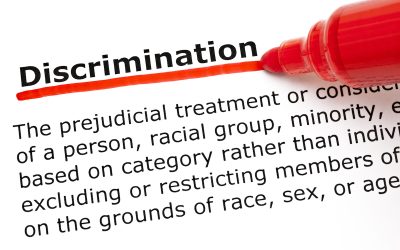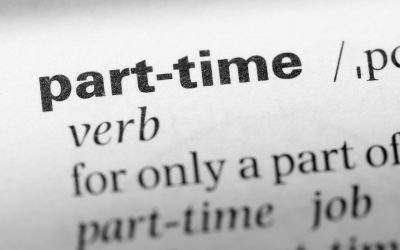Employment law news
Stay Updated
Be the first to know about changes in employment law. Sign up to receive our monthly employment law news email updates.

Review of the Employment Rights Bill 2024 and implications for employers
The Government has, today published a new Employment Bill which sets out an enormous shift in employee rights in favour of employees. The bill is unfortunately quite complex and refers to regulations which have not yet been published. However, the headline changes are:
New Employment Bill Gives Much Greater Rights to Employees
The Government has, today published a new Employment Bill which sets out an enormous shift in employee rights in favour of employees. The bill is unfortunately quite complex and refers to regulations which have not yet been published. However, the headline changes are:
Tribunal didn’t have to reduce compensatory awards where it had found contributory conduct by the employees
When looking at unfair dismissal compensation, employers often argue that the conduct of the employee has contributed to their dismissal. The Employment Rights Act 1996 makes it clear that contributory conduct by an employee can have an impact on the level of...
Supreme Court re-instates injunction preventing Tesco from using fire and re-hire to remove ‘permanent’ right to retained pay.
In 2007, Tesco re-organised its warehouses resulting in mass relocations. As an alternative to potential redundancy, Tesco negotiated with USDAW (the recognised trade union) that it would give any staff who stayed on, and agreed to be relocated, a ‘Retained Pay’...
Discriminatory Names
A warehouse worker has lost his discrimination claim after complaining about his boss being called ‘Willy’. In Aylmer v Dnata Catering, the Claimant objected to his boss William McGinty referring to himself as ‘Willy’. The Claimant asked his boss to avoid using the...
Recruitment decision made based on who would ‘fit in’ with the team found to be discriminatory
Employers need to be able to demonstrate that decisions on recruitment have been made fairly, based on criteria which have been applied to all applicants. Allowing subjectivity to creep in risks any decision taken being challenged as discriminatory. This happened in...
Tribunal erred by failing to consider if it was a reasonable adjustment to hold off dismissing disabled employee until merger was completed
Where an employer knows (or reasonably ought to know) that an employee is disabled, the duty to make reasonable adjustments is engaged. Employers must take reasonable steps to remove any disadvantage at which an employee is placed by reason of their disability. A...
Policy paper setting out what to expect from Low Pay Commission on national minimum/living wage from next year
The Low Pay Commission (LPC) has published a Policy Paper setting out how it will respond to its updated remit from the government. The LPC is an independent body that advises the government on the National Minimum Wage (NMW) and National Living Wage (NLW) each year. ...
Anti-Islamic aspects of Claimant’s belief in English nationalism not a protected belief under Equality Act 2010
Under Equality Act 2010 employees have protection against discrimination on grounds of ‘religion or belief’. Whether or not a person’s views should be regarded as a ‘protected belief’ is often a contentious initial issue. Tribunals are guided by principles set out by...
Workers (Predictable Terms and Conditions) Act 2023 shelved
It has been confirmed that the Workers (Predictable Terms and Conditions) Act 2023 will not be brought into force this autumn, as originally expected. The Act gave workers with uncertain hours the right to request predictability about their working days and times, the...
5 things you should know about part-time workers
According to the UK Parliament’s UK labour market statistics, over 8 million people are currently employed on a part-time basis. Part-time workers in the UK have protection from discrimination in the form of the Part-Time Workers (Prevention of Less Favourable...
Sickness and holidays
If an employee falls ill during a period of booked holiday, then, provided they notify the employer, they are entitled to convert the holiday to sick leave. This saves them holiday days which can then be used at another time. What does this mean for employers? Here...
Employer Duty to Prevent Sexual Harassment
Many employers will know that there is a new duty to take reasonable steps to prevent sexual harassment which comes into force on 26th October.













